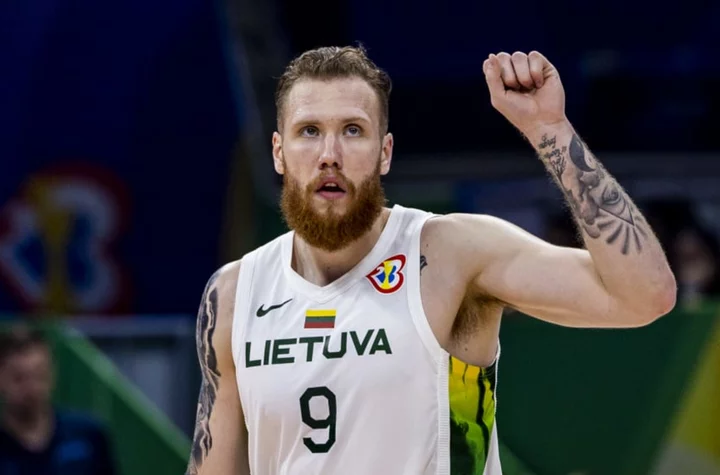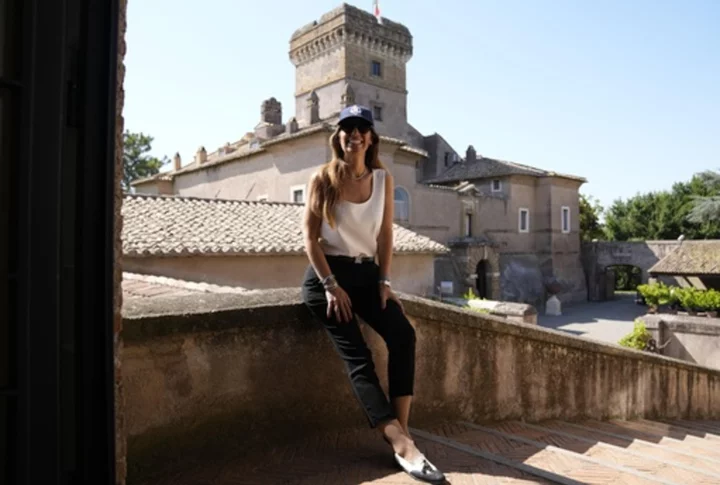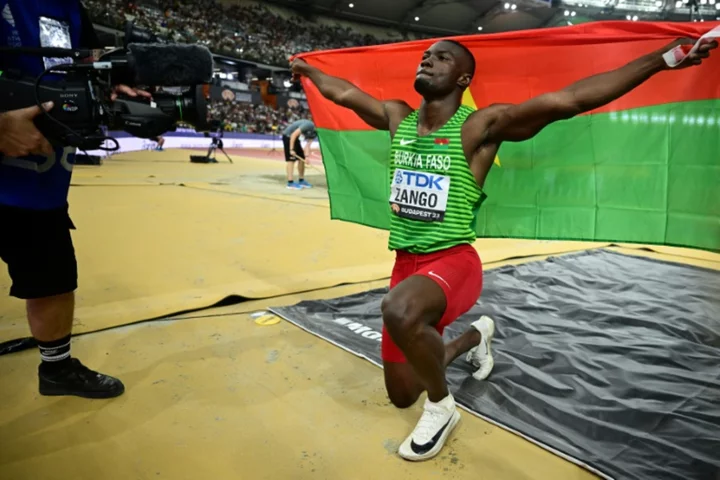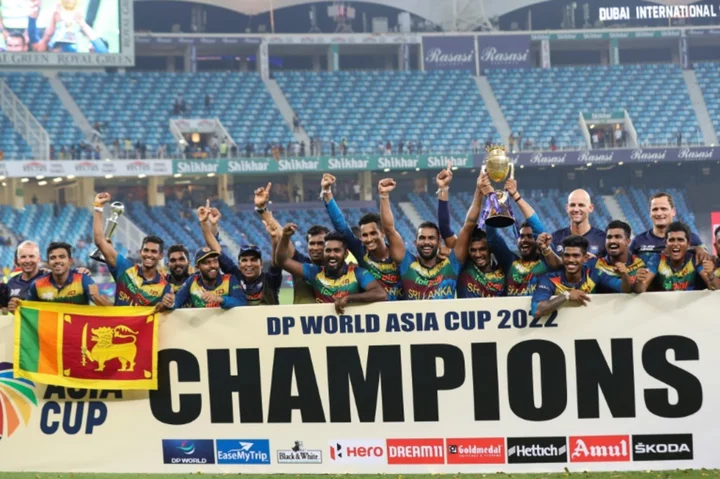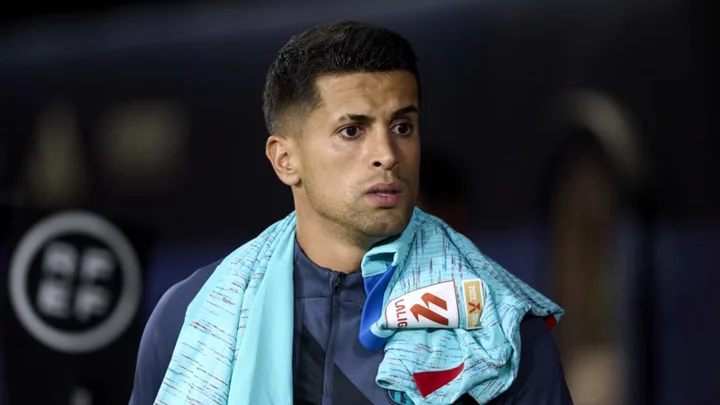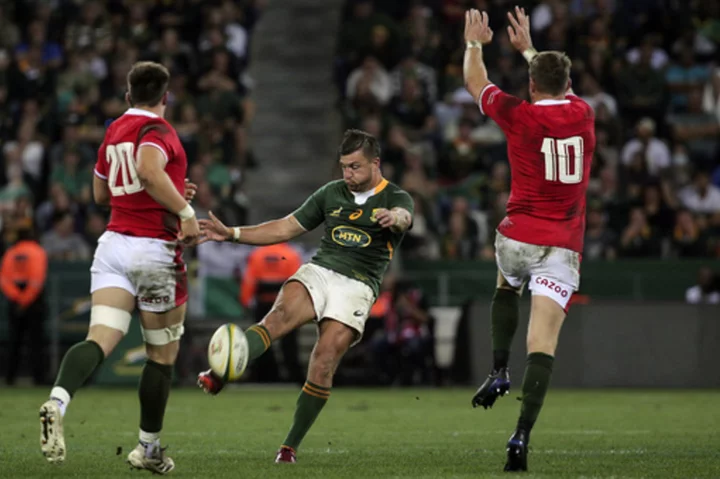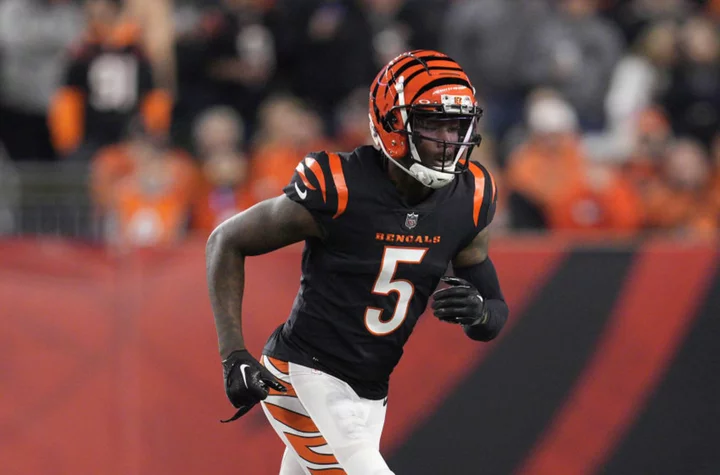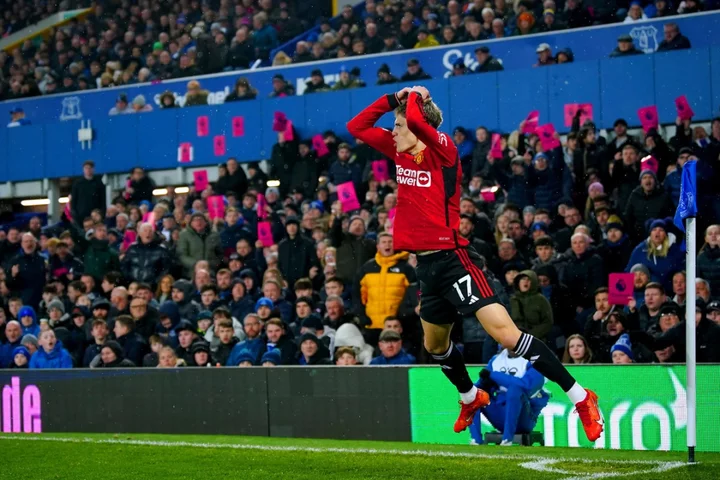Nikola Mirotic and Kemba Walker were the two biggest EuroLeague free-agent moves of the summer, but the most shocking EuroLeague transfer was easily Kostas Sloukas deciding to move from Olympiacos to archrivals Panathinaikos. On top of that, last season's EuroLeague MVP Sasha Vezenkov departed for the Sacramento Kings. It was a nightmarish start to the EuroLeague offseason for Olympiacos, but they have made a valiant effort to replenish their squad.
Nigel Williams-Goss was brought in from EuroLeague champions Real Madrid. Luke Sikma joined from ALBA Berlin. Nikola Milutinov returned to EuroLeague, joining from Russian club CSKA Moscow. Then, with training camps already underway, Olympiacos dropped 500,000 euros on Lithuanian wing/forward Ignas Brazdeikis to bring him in from fellow EuroLeague team Zalgiris Kaunas on a long-term deal.
Head coach Georgios Bartzokas is known for getting the most out of his players, whether they are already established stars or up-and-comers. But does he have enough tricks up his sleeve to continue Olympiacos' Final Four streak?
EuroLeague teams: How can Olympiacos replace Sasha Vezenkov and Kostas Sloukas in the upcoming EuroLeague season?
For starters, there is no replacing Vezenkov. The Bulgarian forward was EuroLeague MVP for a reason last season: he was the best player in the competition. Their best chance at replacing him with one transfer was by bringing in Mirotic, who signed for Olimpia Milano instead.
Vezenkov was in the 75th percentile or better last season as a spot-up shooter, a cutter, in transition, in the post, and coming off screens per Synergy Sports and not including passes. Vezenkov is not only a uniquely intelligent and efficient scorer, but arguably one of the best the international game has ever seen. To paraphrase the film Moneyball, there is not another forward like Vezenkov out there. If there was, Olympiacos could not afford him.
Sloukas is a different case. The Greek guard is an awesome offensive player. He was in the 72nd and 78th percentile as a pick-and-roll ballhandler and spot-up shooter last season on 318 and 117 possessions respectively. While acknowledging Sloukas' talent, he is replaceable.
American guard Williams-Goss is joining Olympiacos for the second time in his EuroLeague career, and last season with Real Madrid he was in the 95th percentile as a pick-and-roll ballhandler on half the volume. He was in the 73rd percentile on slightly higher volume the season before, and 75th percentile in the 2020-21 season with Lokomotiv Kuban Krasnodar. He has comfortably matched Sloukas' pick-and-roll end product throughout his career but will now have to do it on a higher volume.
Sloukas and Williams-Goss differ in their pick-and-roll approaches. Sloukas saw a lot of drop coverage from opposing defenses due to his ability to turn the corner quickly and finish at the rim. In response, he opted for more pull-up jumpers. Sloukas opted for off-the-dribble jump shots on nearly 37 percent of his pick-and-roll possessions in EuroLeague last season and only shot 30 percent on them. When attacking the basket, he shot 83 percent.
Williams-Goss was the inverse, shooting only 50 percent at the rim in pick-and-roll scenarios last season and on lower volume. He was a better jump shooter though, connecting on 45.5 percent of his off-the-dribble jumpers out of pick-and-roll scenarios.
Sloukas and Williams-Goss opt for different shots out of the pick-and-roll because they have different strengths. Sloukas is left-handed, has a great first step, and a soft touch at the rim. This makes him opt for quick 3s or lay-ups. Williams-Goss is strong and has a formidable center of gravity, making him prefer the hostage dribble and giving himself time to surveil the floor and decide how he wants to attack. Williams-Goss patient approach could help incorporate their spot-up shooting as well, something they'll need to continue to lean on even after Vezenkov's departure.
Sloukas and Williams-Goss are a like-for-like swap, but what about the volume? Can Williams-Goss handle that increase? On his own, likely not. But split amongst two players he probably can, and that's why Olympiacos brought in the 500,000 euro man — Brazdeikis.
Brazdeikis scored 0.98 points per possession for Zalgiris Kaunas in EuroLeague play last season on 123 possessions. He attacked the rim frequently in these scenarios, 62 percent of the time. He shot 54.5 percent a the rim, which will be good enough for him to take on some of the Sloukas pick-and-roll workload. Like Williams-Goss, Brazdeikis prefers his strength and balance to quickness. Olympiacos pick-and-rolls will be slow, but still effective and threatening to opposing teams.
Now what about Vezenkov? Is Sikma a direct replacement? Not even close, all due respect to Sikma. The two have similar offensive profiles though. In EuroLeague play last season, 46 percent of Sikma's offensive possessions were spot-ups, post-ups, or cuts. For Vezenkov, 59 percent were of this variety. Sikma post-ups will likely see less usage with Olympiacos. He was in the 18th percentile for EuroLeague last season. Olympiacos will still use post-ups, but more on that later.
Vezenkov was in the 71st percentile for EuroLeague as a spot-up shooter last season and the 66th as a cutter. Sikma is not the shooter Vezenkov is — big shock there — but he was in the 74th percentile as a cutter across all competitions* on about 75 percent of the volume. The math shows Sikma could partially fill Vezenkov's shoes.
*Comparing across competitions is unfair to Vezenkov but ALBA's terrible season is also unfair to Sikma. We're going to pretend the two cancel out here for the sake of discussion, but keep that difference in mind when making your conclusions about the comparison.
Sikma is not Vezenkov, we have said that over and over throughout this piece intentionally. But he can recreate some of what Vezenkov did for Olympiacos last season, and allow their offense to flow the way their players are accustomed to. There's a lot of value in that, not Vezenkov levels of value, but good value. Whether it's enough to help The Reds stay among EuroLeague's elite is doubtful. That will depend on additional play types they could go to.
When you can't sign perfectly equal replacements for your stars, which is common across all professional sports not just EuroLeague, you need to make tweaks to your overall playbook and strategy. Not the plays themselves, but the usage of each one. The question after losing players like Vezenkov and Sloukas is not how do we replace what they did but how do we replace what we, Olympiacos, did with them.
Olympiacos will be less efficient on spot-ups without Vezenkov, ditto for cuts. The pick-and-roll output will likely be around the same, so they've got to go elsewhere to finish filling in the Vezenkov-sized hole on the scoreboard. This will start with one of their other offseason signings, Serbian center Milutinov.
Milutinov, like Williams-Goss, is returning to Olympiacos after spending five seasons with the club from 2015 to 2020 before leaving for CSKA Moscow.
CSKA and all Russian clubs are banned from continental competitions, but Milutinov was still one of the best post-players in Europe last season. He scored 1.21 points per possession on 156 post shots, good enough for the 96th percentile. Vezenkov was Olympiacos' only player last season with more than 50 post shots who scored ahead of the 50th percentile.
Milutinov is also a very good roll man (82nd percentile on 124 possessions) and cutter (70th percentile on 80 possessions). He will add a new layer to Olympiacos' offense with his post-game. If he can draw second defenders, that will open up the floor for their spot-up shooting, which brings us to the final layer of Olympiacos' life after Vezenkov and Sloukas: leaning into what they already have.
Olympiacos' most frequent offensive possession last season were spot-ups. They scored 1.115 points per possession on 895 possessions across all competitions, placing them in the 83rd percentile. Vezenkov led the way with 173 possessions but the next four leaders in spot-up volume are all coming back: Giannoulis Larentzaikis, Kostas Papanikolaou, Shaquielle McKissic, and Isaiah Canaan. McKissic was not that great, 29th percentile across all competitions. But Larentzaikis, Papanikolaou, and Canaan were in the 64th, 93rd, and 75th percentile respectively. Among these three, Larentzaikis is the most interesting.
Papanikolaou is 33 years old and Canaan is 32. They have shown they are content with their roles as floor spacers, and little more than that. Unics Kazan tried to move Canaan into a ball-dominant role a few seasons ago and it did not end well. For Papanikolaou, that has never been his game or his desire. Larentzaikis was not only a good spot-up shooter last season but he was also good in the pick-and-roll. He scored 1.15 points per possession which placed him in the 92nd percentile in EuroLeague. It was only 40 possessions, but that's the type of sample size that isn't big enough to guarantee success, but big enough to warrant experimentation.
There are no direct replacements for players like Sloukas and Vezenkov. They demand top-dollar European salaries and court heavy NBA interest for a reason. The task of recreating them can seem impossible, but Olympiacos has diversified their offensive threats for the upcoming season to give themselves the best opportunity possible at making Sloukas and Vezenkov afterthoughts.
Whether or not they're able to accomplish this feat will come down to the performance of these players. Can Williams-Goss continue to be an elite pick-and-roll player on higher volume? Is Brazdeikis worth the 500,000 euro buyout? How much of Vezenkov's game can Sikma replicate? Are Milutinov's post-ups good enough to stabilize an elite EuroLeague offense through rough patches? Does Larentzaikis have another level to his game, even at age 30?
When you lose two stars in one summer, you head into the next season with more questions than answers. But if you find those answers quickly, you will pass the test of making your fans forget about the good old days and make them yearn for another Final Four trip.

